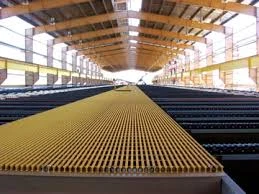
-
 Afrikaans
Afrikaans -
 Albanian
Albanian -
 Amharic
Amharic -
 Arabic
Arabic -
 Armenian
Armenian -
 Azerbaijani
Azerbaijani -
 Basque
Basque -
 Belarusian
Belarusian -
 Bengali
Bengali -
 Bosnian
Bosnian -
 Bulgarian
Bulgarian -
 Catalan
Catalan -
 Cebuano
Cebuano -
 China
China -
 China (Taiwan)
China (Taiwan) -
 Corsican
Corsican -
 Croatian
Croatian -
 Czech
Czech -
 Danish
Danish -
 Dutch
Dutch -
 English
English -
 Esperanto
Esperanto -
 Estonian
Estonian -
 Finnish
Finnish -
 French
French -
 Frisian
Frisian -
 Galician
Galician -
 Georgian
Georgian -
 German
German -
 Greek
Greek -
 Gujarati
Gujarati -
 Haitian Creole
Haitian Creole -
 hausa
hausa -
 hawaiian
hawaiian -
 Hebrew
Hebrew -
 Hindi
Hindi -
 Miao
Miao -
 Hungarian
Hungarian -
 Icelandic
Icelandic -
 igbo
igbo -
 Indonesian
Indonesian -
 irish
irish -
 Italian
Italian -
 Japanese
Japanese -
 Javanese
Javanese -
 Kannada
Kannada -
 kazakh
kazakh -
 Khmer
Khmer -
 Rwandese
Rwandese -
 Korean
Korean -
 Kurdish
Kurdish -
 Kyrgyz
Kyrgyz -
 Lao
Lao -
 Latin
Latin -
 Latvian
Latvian -
 Lithuanian
Lithuanian -
 Luxembourgish
Luxembourgish -
 Macedonian
Macedonian -
 Malgashi
Malgashi -
 Malay
Malay -
 Malayalam
Malayalam -
 Maltese
Maltese -
 Maori
Maori -
 Marathi
Marathi -
 Mongolian
Mongolian -
 Myanmar
Myanmar -
 Nepali
Nepali -
 Norwegian
Norwegian -
 Norwegian
Norwegian -
 Occitan
Occitan -
 Pashto
Pashto -
 Persian
Persian -
 Polish
Polish -
 Portuguese
Portuguese -
 Punjabi
Punjabi -
 Romanian
Romanian -
 Russian
Russian -
 Samoan
Samoan -
 Scottish Gaelic
Scottish Gaelic -
 Serbian
Serbian -
 Sesotho
Sesotho -
 Shona
Shona -
 Sindhi
Sindhi -
 Sinhala
Sinhala -
 Slovak
Slovak -
 Slovenian
Slovenian -
 Somali
Somali -
 Spanish
Spanish -
 Sundanese
Sundanese -
 Swahili
Swahili -
 Swedish
Swedish -
 Tagalog
Tagalog -
 Tajik
Tajik -
 Tamil
Tamil -
 Tatar
Tatar -
 Telugu
Telugu -
 Thai
Thai -
 Turkish
Turkish -
 Turkmen
Turkmen -
 Ukrainian
Ukrainian -
 Urdu
Urdu -
 Uighur
Uighur -
 Uzbek
Uzbek -
 Vietnamese
Vietnamese -
 Welsh
Welsh -
 Bantu
Bantu -
 Yiddish
Yiddish -
 Yoruba
Yoruba -
 Zulu
Zulu
fiberglass scrubber
Understanding Fiberglass Scrubbers A Solution for Air and Water Treatment
Fiberglass scrubbers are an essential technology in the field of environmental engineering, particularly for air and water treatment applications. These devices are designed to remove pollutants and contaminants from gases and liquids, ensuring compliance with environmental regulations and promoting public health.
Fiberglass scrubbers are made from a durable composite material that combines glass fibers with resin, making them lightweight, corrosion-resistant, and ideal for use in harsh environments. This durability is particularly advantageous in chemical processing industries, wastewater treatment plants, and various manufacturing facilities where traditional scrubbers may corrode or degrade over time.
One of the key functions of a fiberglass scrubber is to control air emissions. In many industrial processes, gases released into the atmosphere can contain harmful pollutants such as volatile organic compounds (VOCs), sulfur dioxide, and ammonia. Fiberglass scrubbers utilize a method called absorption, where these contaminants are absorbed into a scrubbing liquid, often water or a chemical solution. As the contaminated gas flows through the scrubber, the scrubbing liquid captures the pollutants, thus purifying the air before it is released.
fiberglass scrubber

In addition to air treatment, fiberglass scrubbers are also effective in treating wastewater. They can be designed to remove organic and inorganic pollutants from liquid streams. By optimizing the contact time and surface area for interaction between the liquid and pollutants, fiberglass scrubbers can significantly enhance the cleaning process. They are often used in conjunction with other treatment methods to create a comprehensive system that meets stringent discharge requirements.
The efficiency of fiberglass scrubbers can be influenced by factors such as flow rate, pollutant concentration, and the temperature of the processes involved. Manufacturers often provide customizable options to ensure these scrubbers meet specific operational needs, making them versatile tools for various applications.
Another benefit of fiberglass scrubbers is their low maintenance requirements. Due to the inherent properties of fiberglass, these scrubbers resist fouling and scaling, which are common issues with metal scrubbers. This feature not only prolongs the lifespan of the equipment but also reduces operational costs over time.
In summary, fiberglass scrubbers are a critical component in modern pollution control strategies. Their robust design, combined with their ability to treat both air and water, makes them an ideal choice for industries looking to minimize their environmental impact while maintaining regulatory compliance. As industries continue to face increasing scrutiny regarding emissions and waste, the demand for effective, reliable solutions like fiberglass scrubbers is likely to grow.









